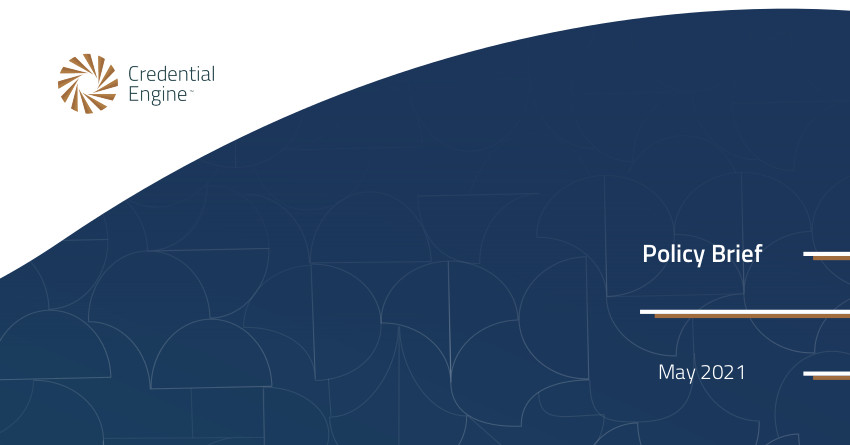
There have been calls for a focus on more transparent outcomes in postsecondary education and training for decades. But these conversations have happened largely between similar providers or programs. As a result, the frameworks and metrics of quality and definitions of “outcomes” haven’t been consistent or comparable. Education and training providers use inconsistent and opaque systems to report outcomes, which makes it almost impossible to gauge quality.
A new policy brief from Credential Engine, Making Information About Credentials More Actionable Through Increased Transparency and Quality Assurance, increases the power of transparency by assuring the quality of credentials. State Policymakers, working together with critical stakeholders, can lead efforts to prioritize high-quality and high-value credentials through using frameworks that better describe, incent, assess, and connect quality assurance processes. The brief offers concrete recommendations for state policymakers supported by state examples for how this work is unfolding across the country.
Read more about credential quality and transparency on the Skills Blog
—
Five state leadership organizations and five workforce, education and data advocacy/technical assistance experts have come together to build awareness, understanding, and demand for how policy can integrate credential transparency into education and workforce development state strategies. This brief is one amongst a series of policy briefs that explore the ways that credential transparency can be supported, integrated, and leveraged within states.
Members of the State Policy Partnership include:
For more information on the State Policy Partnership or Credential Transparency, please contact Scott Cheney, CEO of Credential Engine, at 202.257.0279 or scheney@credentialengine.org. For general inquiries please contact info@credentialengine.org.